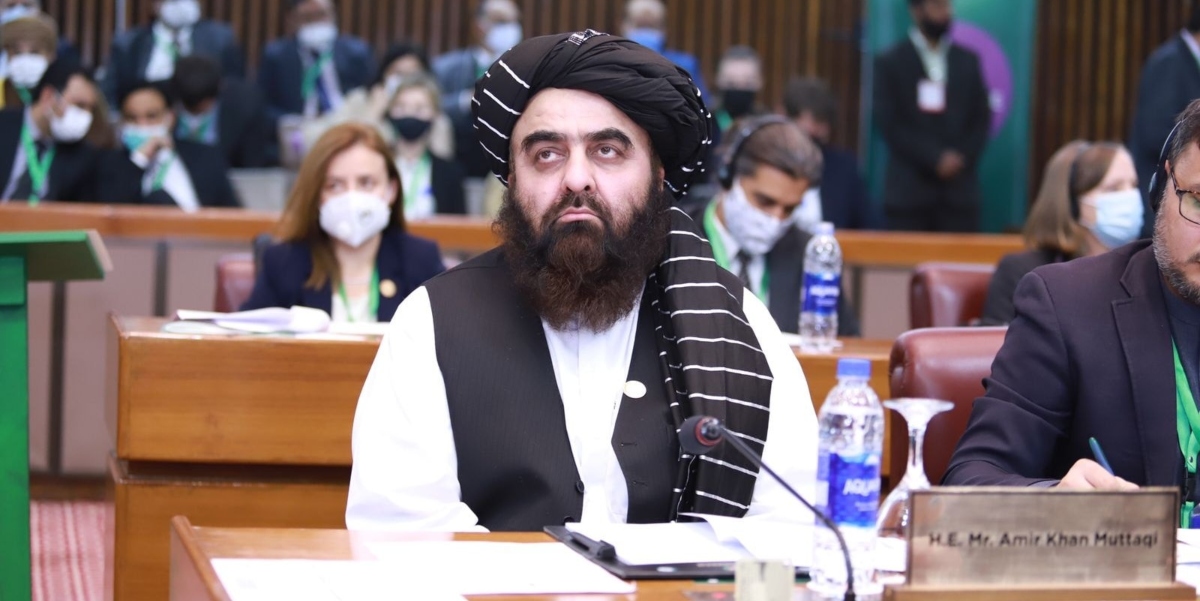PESHAWAR: Representatives of the Islamic Emirate of Afghanistan, led by the interim Foreign Minister Mullah Amir Khan Muttaqi visited Qatar earlier this month to attend a series of meetings with diplomats and other representatives from the US and several other European states.
Amir Khan Muttaqi met US Special Representative for Afghanistan Tom West and it is believed that the issue that remained on top of the meeting agenda was releasing of Afghanistan’s funds that the US had frozen after the Taliban took over Kabul earlier this year.
It has been over four months since the Taliban took over the capital of Afghanistan on 15 August and announced the reestablishing of the Islamic Emirate government in Afghanistan after almost 20 years since the US-led invasion of the country in late 2001.
The takeover shocked everyone by surprise as it took the Taliban 11 days to take control of 27 provincial capitals before running over Kabul in arguably the most bloodless takeover of an entire country.
The victory celebrations were cut short as foreign funding stopped coming into the country that was surviving on foreign aid for the past two decades.
The country’s assets, over $9 billion were frozen by the US after the Taliban takeover. The Taliban soon started realizing that running a country was more difficult than fighting.
One senior Taliban figure rightly describes it that the farm which was just surviving on water from a canal is now expected to thrive on irrigation water from a bucket.
After their first rule in Afghanistan was toppled in 2001, the Taliban initiated a guerilla offensive against the US and its allies in the South and East of the country and in the following decade, they gained control over almost 40 per cent of the land despite the presence of the most modern and well-equipped international forces along with their sophisticated technological advantage.
Despite territorial and military losses, it took the US almost 13 years to realize the importance of ‘negotiating’ with the Taliban. The release of US Army soldier Beaudry “Bowe” Robert Bergdahl in May 2014 in exchange for five senior Taliban commanders imprisoned at the infamous Guantanamo Bay came as a result of the months-long talks between the two sides in Doha.
However, it wasn’t until 2018 when the US showed seriousness in engaging the Taliban in peace talks, and after dozens of extensive meetings over many months; the two sides signed the peace deal on 29 February 2020.
Luckily, meetings between the US and Taliban have continued after the former’s withdrawal from Afghanistan on 31 August.
The US has linked the release of the money with certain conditions agreed upon in the Doha Agreement, that according to the US officials have not been met by the Taliban till date. These include women rights, girls’ education and inclusive government among other matters of concern for the international community. The US, European states and almost all other nations around the world believe that the Taliban have not been able to deliver on the promises made on these conditions.
It is understood that the US wanted to release $280 million of the frozen assets for emergency assistance. But it did not want to give the money straight into the hands of the Taliban and instead wanted it to be spent by humanitarian organizations.
However, the Taliban did not agree to this offer and instead demanded the release of all frozen assets into the Afghan government’s hands. Taliban have also been repeatedly saying that they have fulfilled the aforementioned conditions to some extent and are working on further fulfilling their promises.
Another matter that has popped up in every meeting between the two former enemies is the recognition of the Islamic Emirate of Afghanistan. The Taliban have been demanding the US to formally accept their government.
The Taliban are aware that a formal recognition by the US will pave way for all other nations to accept their rule as legitimate in Afghanistan, thus allowing the smooth inflow of foreign aid and humanitarian assistance, trade and return of international flights into the economically stressed country.
The US however is still reluctant to accept that the Taliban have implemented the Doha Agreement in its full spirit.
Similarly, a source aware of the developments in the recent talks in Doha claimed that the US wants the Taliban to jointly work on ISKP, which has been gaining strength in Afghanistan since the US withdrawal as the group has claimed a number of deadly attacks on civilians and Taliban forces. The US is concerned that ISKP could soon become strong enough to launch terrorist activities outside Afghanistan, targeting not just Afghanistan’s neighbours but also European countries. However, the Taliban are not willing to accept any assistance or joint ventures against ISKP as they have continuously stated that they have the capacity of countering any threat from ISKP.
The UN blacklist is apparently another matter that came under discussion in the recent meetings. The Taliban are not happy with the list which imposes a travel ban on a number of its leaders, including some ministers and governors. They want the Blacklist and all its restrictions abolished. However, just like most of the meeting points, no progress has been made on the matter till now.



















